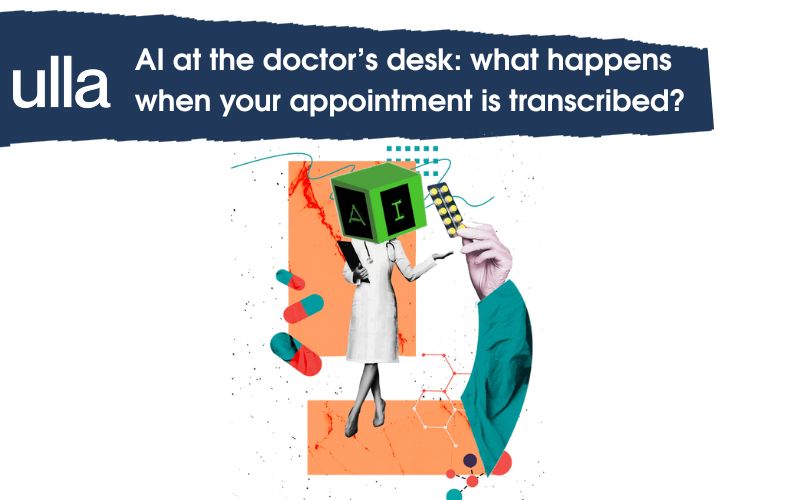AI at the doctor’s desk: what happens when your appointment is transcribed?

We’ve all been there. You book an online consultation. The doctor asks a few questions, maybe checks your symptoms, then quickly wraps up with advice and next steps.
And by the time you log off, you’re wondering: “What exactly did they say again?”
Welcome to one of the most overlooked pain points in modern healthcare: the disappearing medical conversation.
The problem with memory in medicine
According to a study published in BMJ Open Quality, only 12% of patients recalled receiving informational leaflets during consultations, highlighting a significant gap in patient retention of medical information. BMJ Open Quality
This isn't just frustrating. In complex care cases, it can be dangerous.
For medical professionals, too, manual note-taking often means typing under pressure, multitasking while talking, and retroactively writing reports long after the patient has disconnected.
A quiet revolution in the doctor's office
But something is changing. In both NHS pilots and private clinics, more and more healthcare teams are turning to AI-powered transcription tools during appointments.
The goal?
- Automatically record the conversation
- Accurately summarise key clinical details
- Share post-visit notes with both the doctor and the patient
The NHS has introduced AI-powered tools to assist clinicians by reducing administrative burdens and freeing up staff time, thereby enhancing patient care. GOV.UK
Even the World Health Organization is now funding AI-based solutions to reduce administrative burnout in primary care settings. World Health Organization
Where Ulla comes in
While Ulla is currently focused on secure transcription and summarisation across professional settings, the technology is increasingly relevant to healthcare environments.
In scenarios like online consultations, AI tools like Ulla could be used to:
- Record virtual appointments with patient consent
- Generate structured follow-up notes for patients
- Add transcriptions directly to medical records or patient portals
- Ensure compliance with GDPR, HIPAA, and local data protection standards
And unlike cloud-only platforms, Ulla can be fully deployed on local servers - keeping sensitive data exactly where it belongs.
The takeaway
In a world of 10-minute appointments and information overload, AI transcription isn’t a luxury. It’s how both doctors and patients can leave the (virtual) room with peace of mind.
If your organisation is exploring ways to improve clarity, reduce documentation time, and protect medical data - Ulla is already in the waiting room.
Let us know when you're ready to talk.

Posted in Uncategorized on May 19, 2025.







